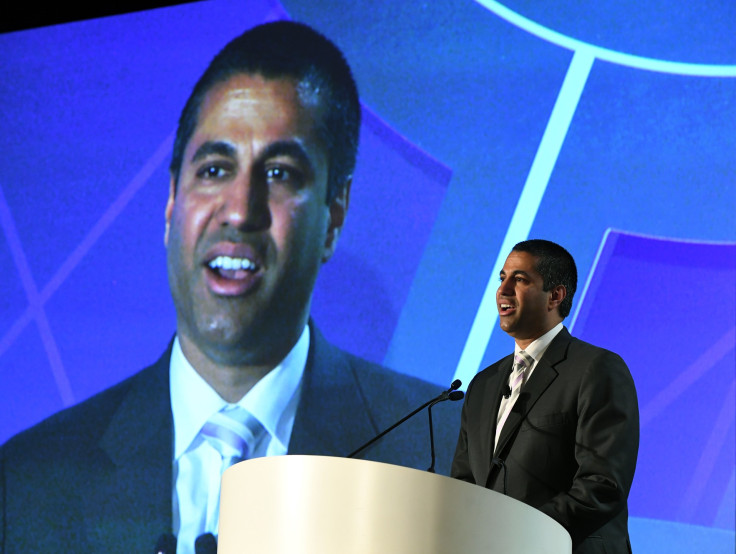FCC Chairman Ajit Pai Was Wrong About Bitcoin

Federal Communications Commission chairman Ajit Pai mentioned bitcoin today during his speech about the repeal of net neutrality protections. “With new activities like high-volume bitcoin mining that we can’t yet fully grasp, we are imposing ever more demands on the network,” Pai said. Bitcoin core developer Matt Corallo told International Business Times this statement is inaccurate.
“It [bitcoin] will probably be less impacted than other things. Obviously bitcoin mining is almost entirely unaffected. Pointing to that betrays a fundamental lack of understanding,” Corallo said. “In terms of bitcoin more broadly, almost all uses of bitcoin tend to be very low bandwidth."
The FCC’s decision will end the legal protections that prohibited broadband providers like AT&T from blocking certain websites and content or charging more for high quality service, such as streaming high quality videos on Netflix. Cryptocurrency does not generally add additional strain to such network activity, the way streaming videos can. Plus, many cryptocurrency networks are better prepared to withstand corporate censorship than other platforms. The blockchain company Blockstream even offers free access to bitcoin via a satellite network. People could theoretically use a power generator and a basic satellite dish to use bitcoin.
“Bitcoin was specifically invented as a decentralized technology because it needed to be anti-censorship,” Paul Shapiro, partner and product director at MyMonero, told IBT. “It was basically invented to survive centralized organizations, like ISPs, attempting to dictate which protocols you can use and things like that.”
Corallo agreed that bitcoin’s technology is very censorship resistant. “Because of bitcoin's unique security model, you end up designing all kinds of fall backs,” Corallo said. “If your ISP decides to cut you off from other parts of the bitcoin network, you can use satellite connections. There's great support for Tor. There are various fallbacks that already exist and would limit the impact of such, let's call them attacks."
Bitcoin is the leading cryptocurrency, but it is not the only digital currency with such security features. Many Ethereum enthusiasts are exploring the potential of mesh networks, which already help people access the internet off the grid. Meanwhile, the monero community is working with a technology called Kovri, which is kind of like a Tor browser in that it bounces your connection all over the place so it is extremely difficult to track or censor the user’s internet access.
Ending net neutrality had nothing to do with bitcoin activity, nor will this repealed policy eliminate people’s access to cryptocurrency. It may, however, make participating in blockchain networks more expensive. For example, operating a bitcoin node could cost more in the future. According to Earn.com, the United States is currently home to more than 27 percent of the world’s bitcoin network nodes.
"Anything that uses the internet to function is related in the same exact way,” Corallo said. “It becomes more expensive... I think maybe Australia is a good example where bandwidth is astoundingly expensive, in large part because of monopolistic practices of the ISPs there.”
Ending net neutrality may hamper the free flow of information on the internet. But it probably won’t impact bitcoin’s global potential because bandwidth isn’t an issue here. “There are people who are using VPNs to circumvent China’s great firewall,” Shapiro said. “I don’t think the [cryptocurrency] movement can be permanently killed.”
© Copyright IBTimes 2024. All rights reserved.





















